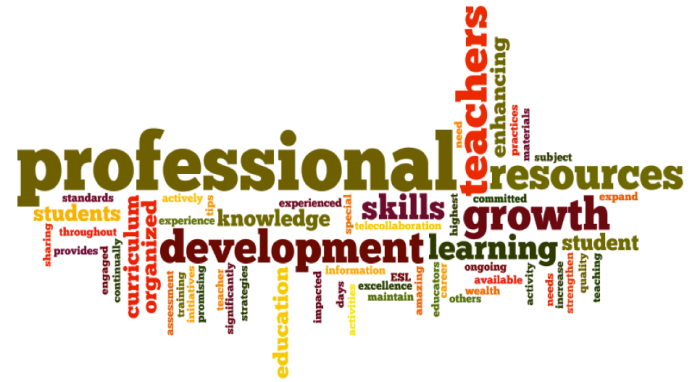 I have been talking with my graduate students with whom I am teaching for an online Educational Leadership course at a local university. One of the questions I asked them was about how impactful their professional development (PD) opportunities are for them in their school. Almost to a person, the students are almost guiltily admitting that their PD sessions are "worthless", "boring", and "a waste of time". So, in an effort to do a little bit of anecdotal research, I asked them to tell me why they felt that way. Here are the two major themes I heard: The Presenter Just Talks at the Audience: I think this is a common theme across the world, not just for teachers, but for the corporate world as well. "Presentations" are given with no time for reflection among the participants. I learned many years ago that businesses (even with interesting information that could be shared if only the execution had been different) conduct what Dave calls "death by Powerpoint". Now, don't get me wrong. I use Powerpoint all the time when I conduct workshops for large and small groups. However, the death by Powerpoint occurs when the presenter simply writes on the slide what they are going to say and then goes to the next slide with no chance for processing or discussion. How can we combat that? First of all, the best workshops tend to have less on a slide and more information that the presenter fills in with opportunities for sharing, discussion, quick-writes, etc. It's a One Shot Workshop With No Follow-Up: This is what we call a "one and done". "One and done" workshops have exactly the same effect as "sit and get"---they don't CHANGE anything.I was teaching school leaders and instructional coaches in a district two years ago about how to have conversations with teachers after observing them in the classroom. They LOVED it. After teaching them the new conversation skills, we would go into a teacher's classroom, observe him/her for about 15 minutes, then come back and align our notes/evidence to components of effective teaching. I would then send my notes to the teacher and give him/her time to review them. At that point, we would have the teacher come in and I would model a post-observation/reflection conference. Every teacher said it was the first time they had ever spoken so much at a reflection conference. They said they were usually talked TO about what the principal had seen. After the teacher would leave, the school leaders and I would debrief. They ALL said, "I never realized I talked so much" or "I never knew how to ask questions that would provoke such deep answers from the teachers". But when the superintendent came with us during one "round" of these sessions, one of the principals spoke up (God love her). She said to the superintendent: "This has been the most game-changing work we have ever had because Dr. Arneson has modeled and practiced what she preached. BUT...if it stops now, it would all be for nothing, as we need her to come back and COACH us on how we are doing with these conversations." I loved how explicit she was about what she needed. The point is we need follow-up, coaching, and alignment of goals in order to increase the effectiveness of the workshop we are getting. I am happy to say that is exactly what I will be doing all this and next month in a charter school network in Arizona. I will be modeling reflection conferences for every site, then I will coach each school leader on their own work on conversation skills in a reflection conference. That network is really putting their money where their mouth is, and they see the value in sustainability, not just a "sit and get" or "one and done" workshop. In what ways might you make a change in the way your school or business presents professional learning opportunities to make them more applicable to your future work? I would love to hear your thoughts! Happy Communicating, Shelly
0 Comments
Leave a Reply. |
Shelly ArnesonCategories |


 RSS Feed
RSS Feed